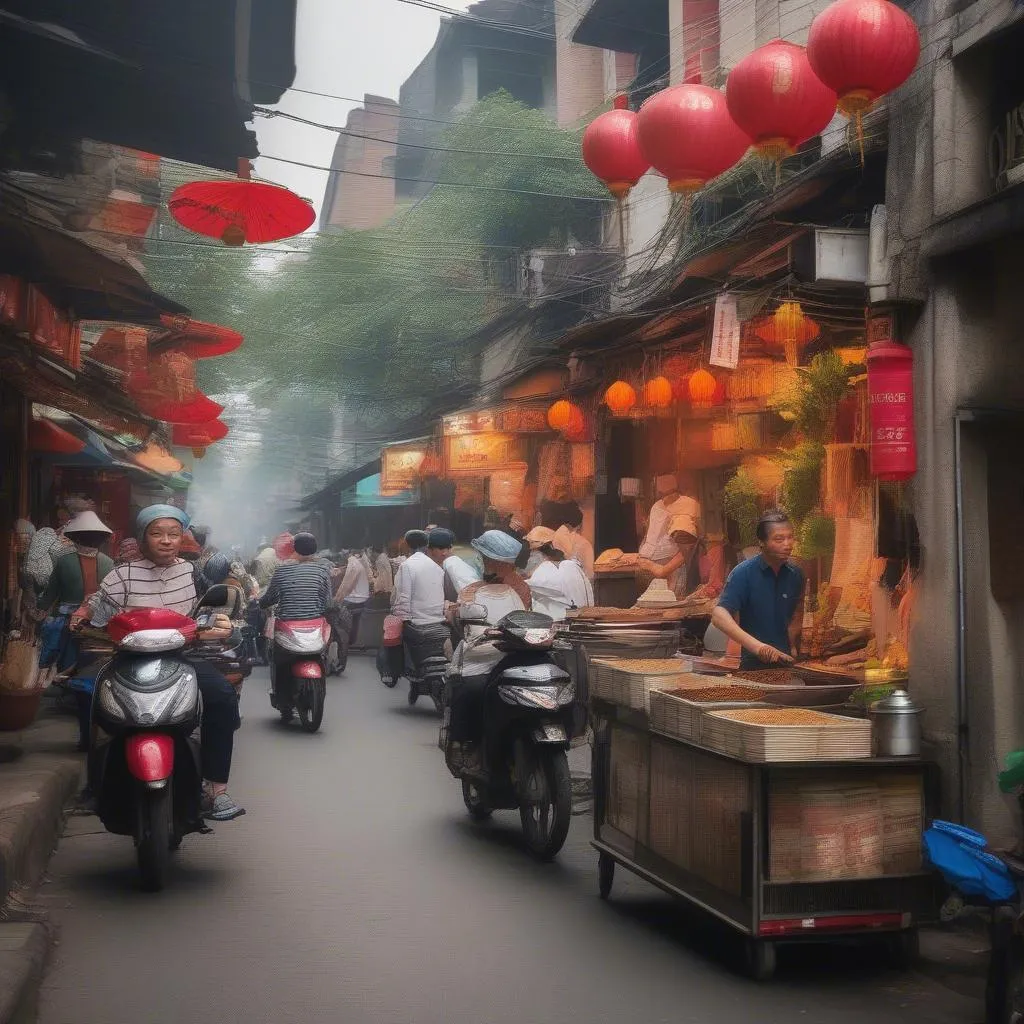Have you ever dreamt of cruising the emerald waters of Ha Long Bay or getting lost in the bustling streets of Hanoi’s Old Quarter? Vietnam, with its captivating beauty and rich cultural tapestry, calls to adventurers like a siren song. But before you pack your bags and book your flights, one crucial question needs answering: “Do You Need A Visa To Travel To Vietnam?”
Don’t worry, navigating the world of Vietnamese visas might seem daunting, but this comprehensive guide will equip you with all the information you need for a smooth and hassle-free journey to this Southeast Asian gem.
Understanding Vietnam Visa Requirements
Whether you need a visa to enter Vietnam depends on your nationality and the purpose and duration of your stay.
Visa Exemption
Citizens of certain countries are granted visa exemption for a specific period, allowing them to enter Vietnam without a visa. These exemptions usually range from 14 to 90 days, depending on your nationality. For instance, citizens of Southeast Asian countries like Thailand and Singapore enjoy visa-free entry for up to 30 days.
Always double-check the latest visa exemption policies for your country on the official website of the Vietnamese Ministry of Foreign Affairs or consult with the nearest Vietnamese embassy or consulate.
Visa on Arrival (VOA)
Vietnam offers a convenient Visa on Arrival (VOA) program for citizens of eligible countries. This streamlined process lets you apply for a visa online before your trip and receive a visa approval letter. Upon arrival at one of Vietnam’s international airports (like Noi Bai International Airport in Hanoi or Tan Son Nhat International Airport in Ho Chi Minh City), you present the approval letter, your passport, visa application form, and passport photos to obtain your visa stamped upon arrival.
Applying for a VOA in advance is highly recommended to avoid potential delays at the airport.
E-visa
The e-visa is a fantastic option for travelers seeking a quick and efficient way to obtain a Vietnamese visa. This electronic visa allows single-entry visits for tourism or business purposes for up to 30 days. The application process is entirely online, and once approved, you receive your e-visa via email.
Remember to print a copy of your e-visa to present upon arrival in Vietnam.
 Ha Long Bay Cruise
Ha Long Bay Cruise
Planning Your Vietnam Trip
Budget Considerations
Vietnam offers travel experiences for every budget. From budget-friendly homestays and street food delights to luxurious resorts and fine dining restaurants, you’ll find something to suit your taste and pocket.
“Travel is the only thing you buy that makes you richer,” says an old adage. And in Vietnam, you can have enriching experiences without breaking the bank.
Cultural Etiquette
Vietnamese culture is deeply rooted in respect and hospitality.
- Dress modestly when visiting temples and pagodas.
- Remove your shoes before entering someone’s home.
- It is considered polite to ask permission before taking photos of people.
“When in Rome, do as the Romans do,” and in Vietnam, embracing the local customs will enhance your travel experience.
Feng Shui and Travel
In Vietnamese culture, Feng Shui plays a significant role in everyday life, including travel. Many locals believe that starting a journey on a specific auspicious day or carrying a lucky charm can bring good fortune and smooth travels.
 Hanoi Old Quarter Street Food
Hanoi Old Quarter Street Food
While these beliefs are deeply personal, understanding the role of Feng Shui in Vietnamese culture provides a glimpse into the rich tapestry of traditions that shape this fascinating country.
Frequently Asked Questions
Q: Can I extend my visa while in Vietnam?
A: Yes, visa extensions are possible for most visa types. You can apply for an extension at the Vietnam Immigration Department in Hanoi, Ho Chi Minh City, or Da Nang.
Q: What are the health requirements for traveling to Vietnam?
A: It’s advisable to consult with your doctor regarding recommended vaccinations and necessary health precautions. Mosquito-borne illnesses can be a concern, so pack insect repellent.
Q: What is the best time to visit Vietnam?
A: Vietnam’s diverse climate means there’s always a good time to visit. Generally, the months between September and April offer the most favorable weather conditions for exploring the entire country.
Conclusion
Navigating Vietnamese visa requirements might seem like a jungle trek, but with this guide, you’re well-equipped to embark on your adventure. From understanding visa exemptions and the VOA process to exploring Vietnam’s cultural etiquette and the influence of Feng Shui, you’re ready to experience the magic of this captivating country.
Ready to plan your dream trip to Vietnam? Visit travelcar.edu.vn for more travel tips, destination guides, and inspiration to craft an unforgettable journey.